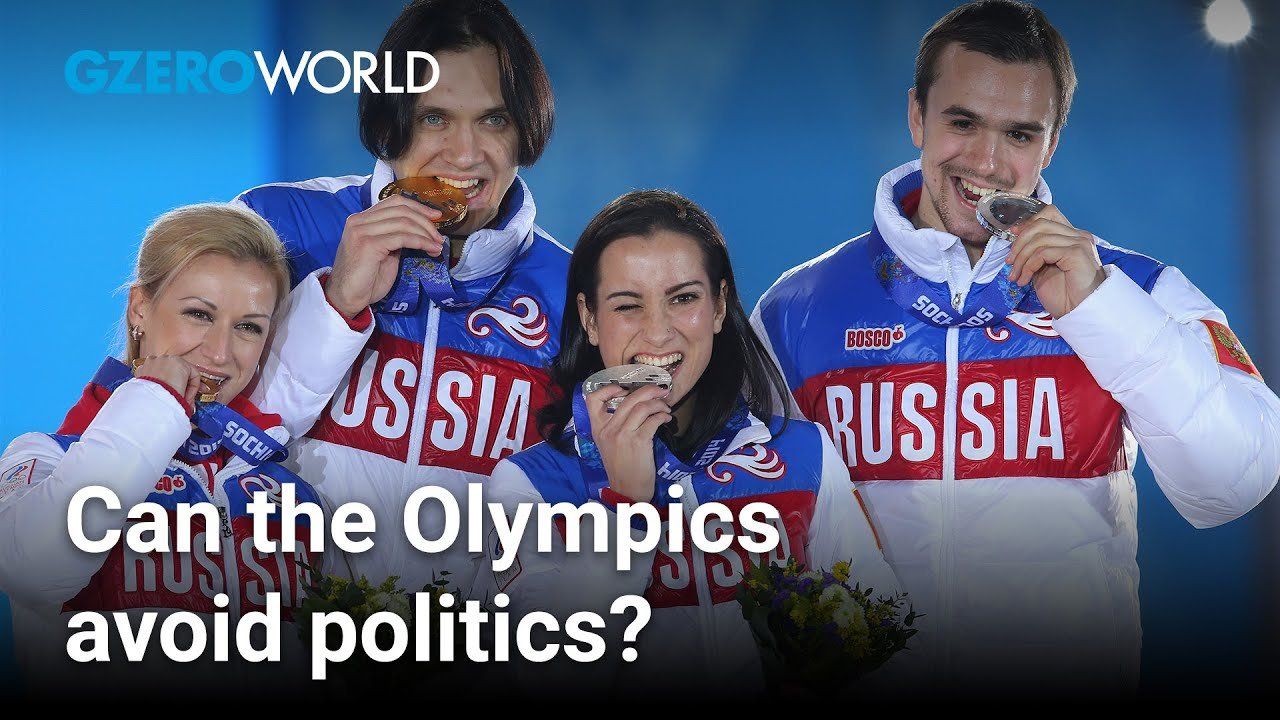
Should politics play a role at the Olympic Games? The International Olympic Committee insists the Games are non-political, but in practice, that’s never really been the case. From boycotts to political protests to national scandals, politics always loom large at the Olympics, and the 2024 Paris Games are no exception.
Washington Post sports columnist Sally Jenkins joins Ian Bremmer on GZERO World to talk about how politics and sports overlap at the Olympics and beyond, including the IOC’s troubling coziness with authoritarian countries like China and Russia. Jenkins points to the Olympic Truce and the history of international cooperation at the Games but also stresses that this Olympics is taking place amid one of the most divisive political eras in decades. Despite the controversies and geopolitical tensions at the games, she says it is the athletes themselves that “scrape the grime” off the Games and make them so inspiring. The effort and commitment to compete after training for four years, she says, is one of the “great competitive miracles we all get to watch.”
Watch full episode: The politics of the Paris OlympicsSeason 7 of GZERO World with Ian Bremmer, the award-winning weekly global affairs series, launches nationwide on public television stations (check local listings).
New digital episodes of GZERO World are released every Monday on YouTube. Don''t miss an episode: subscribe to GZERO's YouTube channel and turn on notifications (🔔).